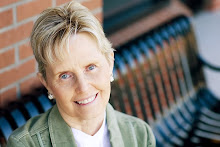This blog was written for coaches who struggle with being helpful, often too helpful, thus denying themselves and their clients the full range of possibilities that coaching from partnership can provide.
Christine’s Fearless Definitions:
Helping – Lending a hand as if stronger, more knowledgeable, or in a position of strength.
Empowering – Creating a context where another assumes power on his/her own in a situation or idea.
In working with dozens of coaches at all stages of development from new student to master with my role being either a mentor coach or examiner for credentials, it has become quite evident that we who are of the “helping professions” have a more powerful role to play in the lives of our clients than simply helping them will allow.
There are two distinctions, unique to coaching in how they are used, that may help clarify for us what coaching is truly all about and why it is different from all other “helping” professions.
1. Partnering. This essential piece of the relationship between client and coach is the heart and soul of coaching as practiced in its purest form. Partners are equals, peers, co-creators. There is no hierarchy in partnering. Neither does partnering relegate the coach to observer, commentator or passive listener. While the coach doesn’t act as the knowing expert, the coach partner does participate in developing actions and ideas with the client not for the client. They work together in service of the client’s agenda.
2. Respecting. We coaches care deeply for our clients…at least that’s an assumption on my part. My experience has been that caring is a double-edged sword. And so I ask myself this question routinely: Do I care enough for my client that I will not permit myself to tell, direct, or judge their ideas, actions or results? ‘Caring’ as used in the coaching relationship is best described in terms of “respecting” as a profound expression of caring. My question then becomes: Do I respect my client enough …?
My observations about helping others extend to those among us who enter the professional of coaching in order to help people. Going along with this concept of helping others is the idea that being a nice person is also a requirement for being a coach. Who wouldn’t want to be and be known as a nice person? Who wouldn’t want a nice person as a coach? Who wouldn’t want to help others?
If I am a truly nice, caring and wish to be helpful to others, is that not sufficient to one day be a master coach? All I need to do is learn the techniques of coaching and the rest is experience. Clearly from my own observational experience, this is a not uncommon mindset of people who call themselves coaches, credentialed or not.
What do ‘nice,’ ‘caring’ and ‘helpful’ have in common? Referring back to my fearless definitions, they have in common the relationship between the coach and client. Taken together, these very wonderful human traits and behaviors can support or preclude partnership. When partnership is not possible, it may be due to the hierarchical relationship inherent in helpful/helping, being nice above all things, and taking caring to a fault.
In a coaching conversation, when I extend my hand to help my client by directing, solving, requiring or offering my ideas in lieu of theirs, I have either precluded or disturbed the partnership that defines the finest expression of coaching.
The road to mastery requires a coach to become a partner with each client. The genesis of partnership is curiosity, the activity is exploration, the being state is ‘not knowing,’ and so the result is empowerment of the client. A client who then becomes aware of what is so, becomes able to design and deliver actions that resolve, develop, turn around, handle, change and transform the reality or the story.
To conclude, the inherent ideal for effective masterful coaching is to respect the client as a partner and owner of the agenda. Being nice, generous, soulful, mindful … yes, and caring then all become the innate behaviors of the relationship that is built on respect and an appreciation for each other as individuals.
Monday, August 16, 2010
Subscribe to:
Post Comments (Atom)

No comments:
Post a Comment